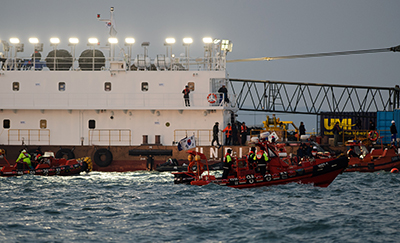New York, October 9, 2014–A Japanese journalist has been charged with criminal defamation in South Korea and forbidden from leaving the country, according to news reports. The Committee to Protect Journalists condemns the move and calls on South Korean authorities to drop the charges against Tatsuya Kato immediately and remove the travel ban.
Kato, Seoul bureau chief of the Japanese daily Sankei Shimbun, was charged on Wednesday in connection with an August 3 story that criticized the behavior of South Korean President Park Geun-hye during the Sewol ferry disaster in April, which left hundreds dead, most of them students. Kato criticized the botched rescue operation and reported online rumors that said Park had been absent for several hours during the disaster because she had been with a man, according to news reports. Park’s office said that she had been within the presidential compound the entire time. The prosecutor’s office in Seoul said it had determined Kato’s report was based on false information, reports said.
The journalist, who has not been arrested, has not been allowed to leave the country since August 7 and has been under investigation since the story ran, according to reports.
If convicted, Kato could serve up to seven years in prison.
“Journalists should be free to report in South Korea, and even if their reporting offends powerful people, they should not face criminal charges or have their movements restricted,” said Bob Dietz, CPJ’s Asia program coordinator. “Criminalizing charges like defamation and libel run counter to the concept of a free press and have no place in a modern democracy.”
